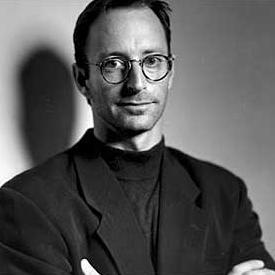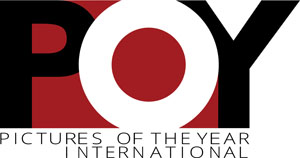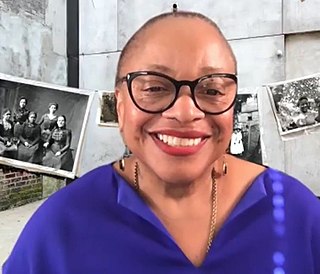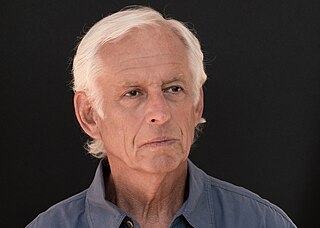
Herbert Ritts Jr. was an American fashion photographer and director known for his photographs of celebrities, models, and other cultural figures throughout the 1980s and 1990s. His work concentrated on black and white photography and portraits, often in the style of classical Greek sculpture, which emphasized the human shape.

Pictures of the Year International (POYi) is a professional development program for visual journalists run on a non-profit basis by the Missouri School of Journalism's Donald W. Reynolds Journalism Institute. POYi began as an annual competition for photojournalism in 1944. POYi promotes the work of documentary photographers and magazine, newspaper, and freelance photojournalists.

Grant Mudford, is an Australian photographer.

Deborah Willis is a contemporary African-American artist, photographer, curator of photography, photographic historian, author, and educator. Among her awards and honors, she is a 2000 MacArthur Fellow. She is currently Professor and Chair of the Department of Photography and Imaging at Tisch School of the Arts of New York University.

Roz Joseph was an American photographer. She took black-and-white photographs of New York City and color photographs of the local architecture and drag scene of San Francisco, California.

Dody Weston Thompson was a 20th-century American photographer and chronicler of the history and craft of photography. She learned the art in 1947 and developed her own expression of “straight” or realistic photography, the style that emerged in Northern California in the 1930s. Dody worked closely with contemporary icons Edward Weston, Brett Weston and Ansel Adams during the late 1940s and through the 1950s, with additional collaboration with Brett Weston in the 1980s.
Willie Robert Middlebrook, Jr. was an American photographer, artist and strong advocate for the African-American community in Los Angeles. He received many honors during his lifetime, including two Visual Artist Fellowships in photography from the National Endowment for the Arts, and many commissions for public works including the Los Angeles Metro Expo/Crenshaw Station. His work has been collected by major museums including the Art Institute of Chicago, the Studio Museum in Harlem and LACMA.

Todd Gray works in photography, performance and sculpture as a contemporary artist who lives and works in Los Angeles, California and Akwidaa, Ghana.

Richard M. Ehrlich is a surgeon and photographer. Born in New York City on March 12, 1938, he obtained a BA in 1959 from Cornell University, where he was a member of the Quill and Dagger society. He has been a professor and physician for over 40 years, and has been recognized as a fine art photographer. The New York Times said his photographs "suggest ephemerality from a broader historical perspective" and that they "look like staged fantasies".
Barbara DuMetz is an American photographer and pioneer in the field of commercial photography. She began working in Los Angeles as a commercial photographer in the 1970s, when very few women had established and maintained successful careers in the field, especially African-American women. Over the course of her career, "she made a major contribution to diversifying the landscape of images that defined pop culture in the United States."
Vera Jackson was a "pioneer woman photographer in the black press". She photographed African-American social life and celebrity culture in 1930s and 1940s Los Angeles. Noted photographic subjects included major league baseball player Jackie Robinson, educator Mary McLeod Bethune, and actresses Dorothy Dandridge, Hattie McDaniel and Lena Horne.
John Kouns was a photographer and social justice activist who played an important role in documenting the United Farm Workers movement and the Civil Rights Movement.

Ming Smith is an American photographer. She was the first African-American female photographer whose work was acquired by the Museum of Modern Art in New York City.
Adama Delphine Fawundu is a Sierra Leonean-American multi-disciplinary photographer and visual artist promoting African culture and heritage, a co-founder and author of MFON: Women Photographers of the African Diaspora – a journal and book representing female photographers of African descent. Her works have been presented in numerous exhibitions worldwide. She uses multiple mediums to create works with themes about identity, utopia, decolonization, and stories of the past, present and future. She is a Professor of Visual Arts at Columbia University.

Harry Holden Adams was an African-American photographer who worked for the California Eagle and Los Angeles Sentinel.

Salimah Ali is an American contemporary photographer working in portraiture, documentary photography, and photo journalism.
Roland Charles was an African-American photographer and gallerist, best known for co-founding The Black Photographers of California and its associated exhibition space, the Black Gallery, in Los Angeles, among the first institutions by and for black photographers.
Guy Rochester Crowder (1940–2011) was an African-American photographer whose work appeared in many publications including the Los Angeles Sentinel. He was the first staff photographer for the Los Angeles County Board of Supervisors and the first African-American to work for that agency.
Janna Ireland is an African-American photographer based in Los Angeles.
Rafael Cardenas is a Mexican-American photographer based in East Los Angeles and Boyle Heights.











